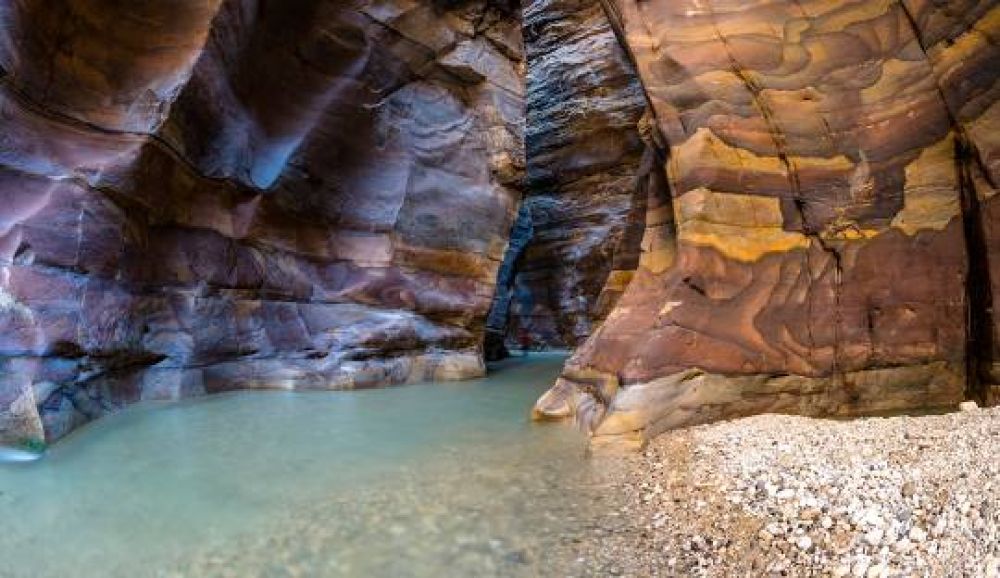

Tourism in the region surrounding the Dead Sea, including the stunning Wadi Mujib, has ancient roots. Historically, the Dead Sea has been a place of refuge and a site of resource extraction. Ancient peoples such as the Hebrews, Egyptians, Romans, and Greeks visited the region for its minerals and salts, which were prized for their healing properties.
The area's reputation as a health destination continued into modern times, particularly during the 19th century, when the first tourists began to arrive in search of the therapeutic benefits of the Dead Sea. This laid the groundwork for the area's burgeoning tourism industry, which would later expand to include attractions such as Wadi Mujib.
Wadi Mujib itself, known as the "Grand Canyon of Jordan", has become increasingly popular among tourists in recent decades. Offering breathtaking scenery and thrilling adventures, it is a hotspot for those seeking canyoning and hiking experiences. The nature reserve was officially established in 1987 by the Royal Society for the Conservation of Nature (RSCN), highlighting its ecological importance and enhancing its appeal as a tourist destination.
In recent years, the tourism industry in Wadi Mujib and the Dead Sea has focused on eco-tourism and sustainable practices. Tour operators emphasize the preservation of the unique environmental and historical landscape while providing visitors with an immersive natural experience.
Adventure tourism has seen a sharp increase, with activities such as rappelling, zip-lining, and swimming in the river's natural pools becoming popular among thrill-seekers. Additionally, the breathtaking Siq Trail offers visitors the chance to walk through the narrow gorge, carved by water, with towering cliffs on either side.
The nearby hotels and resorts by the Dead Sea have increasingly catered to wellness tourism, providing mineral-rich mud treatments and salt baths that capitalize on the Dead Sea's unique properties.
Another latest trend is the rise of digital influence on tourism. Social media platforms and travel blogs play a significant role in promoting Wadi Mujib's remarkable landscapes, generating interest and attracting a diverse, global audience to the area.
Despite these developments, the Jordanian authorities face the challenge of balancing tourism growth with conservation efforts. They have implemented strict guidelines to protect the Wadi Mujib's environment and maintain its status as a sanctuary for rare species of animals and plants.
As tourism continues to evolve, Wadi Mujib and the Dead Sea remain quintessential destinations for historical exploration, outdoor adventure, and wellness retreats, offering visitors an unparalleled experience steeped in natural beauty and ancient significance.